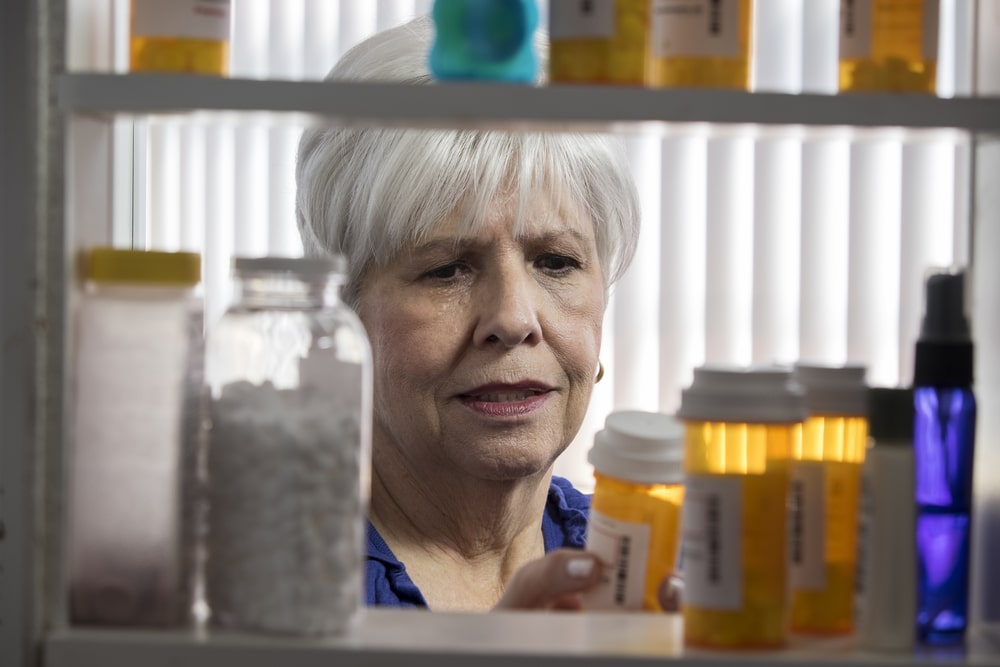
Drug overdose is a significant public health issue that affects all age groups. However, it is particularly concerning among seniors, who are dying at an alarming rate due to drug overdoses. In recent years, there has been a significant increase in the number of seniors who have died from drug overdoses, and this trend shows no signs of slowing down. According to the Centers for Disease Control and Prevention:
This data reveals a frightening trend in drug overdose deaths among older adults. In a single decade, alcohol and drug use among the elderly has skyrocketed, and as a result, more and more seniors are dying of an overdose. It begs the question, is it that more people from the 60's & 70's counterculture movements (hippies, beatniks, etc.) are now approaching their golden years? Or, is it simply that illicit and prescription drugs are more dangerous nowadays?

Many factors contribute to the high overdose rates among the baby boomer population. Along with regular health care procedures and recreational drug use, more and more seniors are becoming a significant part of the drug overdose epidemic in the United States.
Prescription medications, particularly opioid painkillers, significantly contribute to drug overdose among seniors. According to the CDC, seniors are more likely to be prescribed opioids and other medicines for pain relief that can be misused or overdosed on. They are also more likely to experience adverse side effects from these medications, such as respiratory depression, which can be life-threatening.
There are several reasons why seniors may be at increased risk of overdose from prescription medications. One reason is that they are more likely to have chronic pain, terminal illness, dementia, etc., that require multiple medications, increasing the risk of drug interactions and overdose. Additionally, age-related changes in the body, such as decreased kidney or liver function, can affect how medications are metabolized, increasing the risk of overdose.
Prescription drug abuse is also an issue among seniors. Many people mistakenly believe prescription medications are safer than illicit drugs, so they may be more willing to abuse them.
Another major factor underlying drug overdose deaths in seniors is a history of substance abuse. Many individuals reaching their golden years were part of the "hippie" or "free love" counterculture movement in the 1960s and 1970s. During this era, the use of psychedelic drugs such as LSD was popular, as was the use of marijuana.

Unfortunately, many of these individuals have carried their substance abuse habits into old age. They are now more vulnerable to overdosing on substances due to decreased tolerance and physiological changes that come with aging.
Today's drugs are more powerful and, therefore, more dangerous than in the past. For example, the synthetic opioid fentanyl is 50 to 100 times more potent than morphine and can cause death in even small doses. Fentanyl has been linked to a dramatic increase in overdose deaths over the past few years and is particularly deadly for seniors due to their decreased tolerance.
Alcohol use has also increased among seniors, and heavy drinking is becoming more common in this age group. Binge drinking is a particular concern, as it can increase the risk of alcohol poisoning and other health problems. But in many cases, alcohol is pushed to the side in discussions about substance use and addiction.
Older adults are drinking alcohol, and this is driving deaths from overdose, accidents, and liver disease. Besides, mixing alcohol and other drugs, especially depressants, significantly increases overdose risk.
The National Institutes of Health points out that some seniors may turn to drugs or alcohol to cope with significant life changes. Retirement, the death of a spouse, or illness can all be difficult for seniors to handle and can increase their risk of substance abuse. The COVID-19 pandemic has also had a significant impact on seniors, who are more likely to experience isolation and loneliness due to social distancing measures. These feelings can lead some seniors to abuse drugs or alcohol as a way of coping with their situation.

Mental health issues, such as depression, anxiety, or trauma, are a major risk factor for substance abuse and overdose in seniors. According to the World Health Organization, older adults are more likely to have mental health problems than their younger counterparts due to ongoing loss in capacities, the decline in functional ability, life-changing events, a drop in socioeconomic status with retirement, etc. These stressors can result in isolation, loneliness, or psychological distress in older people, leading to increased substance use and overdose.
Given the unique challenges that seniors face, it is important for caregivers, loved ones, and even healthcare providers to be aware of the warning signs of substance abuse and addiction and the available treatment options. Substance abuse is a serious issue that can lead to life-threatening consequences, and seniors need to get the help they need.
But in many cases, older adults have difficulty accessing treatment due to transportation, financial issues, and stigma. As such, they may need extra support and encouragement from family, friends, and the community.
If a senior is struggling with substance abuse, they must get professional help as soon as possible to lessen the risk of overdose and other health problems. By recognizing the unique challenges seniors face and addressing substance abuse issues early on, we can help to reduce the number of overdose deaths in this age group.